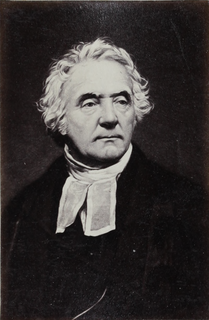A Quote by Criss Jami
Of all the major religions, or lack thereof, the atheist's is one of the best pretenders: his foundation for all existences, as well as moral behaviors for the permanent good of mankind, begins at science but ends at himself, the Napoleon complex of both intelligence and imagination. On the other hand the anti-theist wouldn't survive without a deity beyond himself to hunt. He doesn't pretend, he simply nullifies his own position.
Quote Topics
Related Quotes
Seeing clearly within himself and always able to dodge around the ends of any position, including his own, Shaw assumed from the start the dual role of prophet and gadfly. To his contemporaries it appeared frivolous and contradictory to perform as both superman and socialist, sceptic and believer, legalist and heretic, high-brow and mob-orator. But feeling the duty to teach as well as to mirror mankind, Shaw did not accept himself as a contradictory being.
Man—every man—is an end in himself, not a means to the ends of others; he must live for his own sake, neither sacrificing himself to others nor sacrificing others to himself; he must work for his rational self-interest, with the achievement of his own happiness as the highest moral purpose of his life.
Therefore the good man ought to be a lover of self, since he will then both benefit himself by acting nobly and aid his fellows; but the bad man ought not to be a lover of self, since he will follow his base passions, and so injure both himself and his neighbors. With the bad man therefore, what he does is not in accord with what he ought to do, but the good man does what he ought, since intelligence always chooses for itself that which is best, and the good man obeys his intelligence.
If the artist does not fling himself, without reflecting, into his work, as Curtis flung himself into the yawning gulf, as the soldier flings himself into the enemy's trenches, and if, once in this crater, he does not work like a miner on whom the walls of his gallery have fallen in; if he contemplates difficulties instead of overcoming them one by one ... he is simply looking on at the suicide of his own talent.
He who is himself crossed in love is able from time to time to master his passion, for he is not the creature but the creator of his own misery; and if a lover is unable to control his passion, he at least knows that he is himself to blame for his sufferings. But he who is loved without reciprocating that love is lost beyond redemption, for it is not in his power to set a limit to that other's passion, to keep it within bounds, and the strongest will is reduced to impotence in the face of another's desire.
First, therefore, [the Jew] goes about making up to the people for his previous sins against them. He begins his career as the 'benefactor' of mankind. Since his new benevolence has a practical foundation, he cannot very well adhere to the old Biblical recommendation, that the left hand should not know what the right hand giveth.
We are now in a position to understand the anti-Semite. He is a man who is afraid. Not of the Jews, to be sure, but of himself, of his own consciousness, of his liberty, of his instincts, of his responsibilities, of solitariness, of change, of society, and of the world of everything except the Jews.
A new danger now beset him [Grotius], the danger of becoming simply a venal pleader, a creature who grinds out arguments on this or that side, for this or that client: a mere legal beast of prey. Fortunately for himself and for the world he took a higher view of his life-work: his determination clearly was to make himself a thoroughly equipped jurist, and then, as he rose more and more in his profession, to use his powers for the good of his country and of mankind.
When the atheist is told that God is unknowable, he may interpret this claim in one of two ways. He may suppose, first, that the theist has acquired knowledge of a being that, by his own admission, cannot possibly be known; or, second, he may assume that the theist simply does not know what he is talking about.
There is no deception on the part of the woman, where a man bewilders himself: if he deludes his own wits, I can certainly acquit the women. Whatever man allows his mind to dwell upon the imprint his imagination has foolishly taken of women, is fanning the flames within himself -- and, since the woman knows nothing about it, she is not to blame. For if a man incites himself to drown, and will not restrain himself, it is not the water's fault.







































